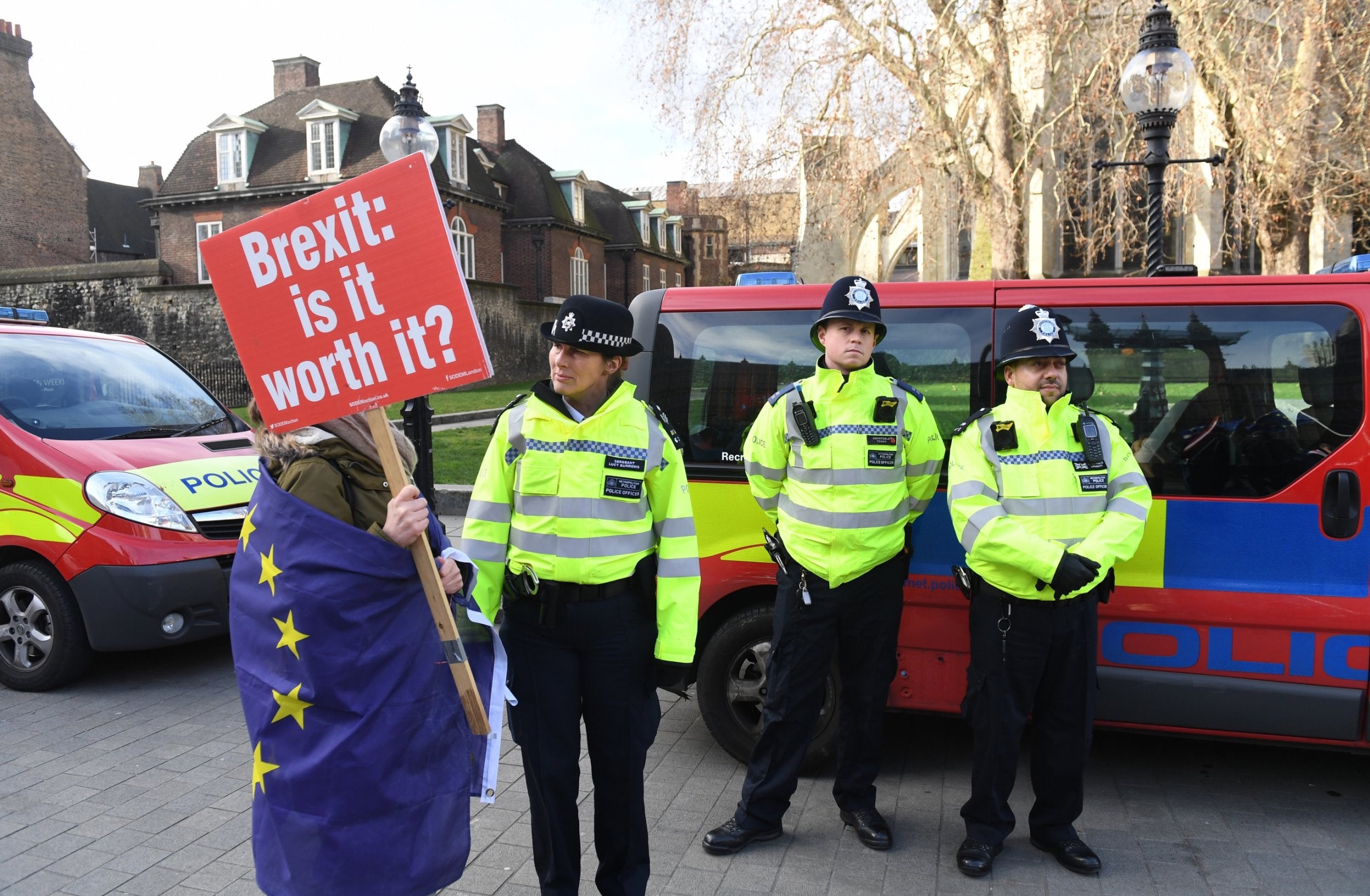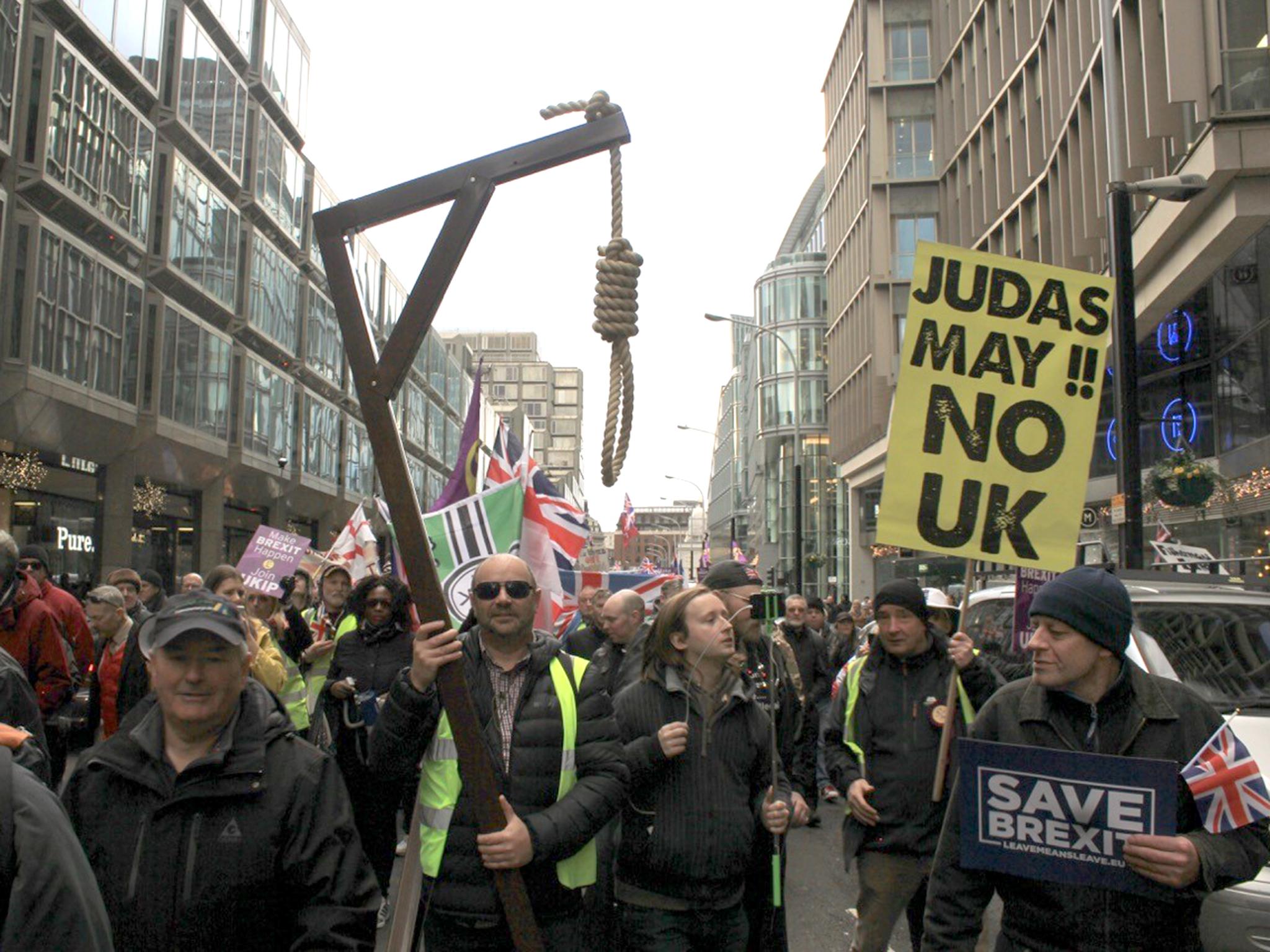General election: Police tell candidates not to campaign alone for own safety amid rising death threats and abuse
Police forces across country holding briefings for candidates as part of beefed-up security operation

Police are urging prospective MPs not to canvass alone and to take “active steps” to protect themselves following an unprecedented increase in abuse and death threats.
For the first time, written safety advice has been sent to all candidates standing in next month’s general election, as every police force in the country prepares safety briefings.
Joint advice from authorities including the National Police Chiefs’ Council (NPCC), Electoral Commission and Crown Prosecution Service advises would-be MPs to seek advice on security measures at their homes and workplaces.
The document calls for candidates to contact police if they fear for their safety, or are the victims of offences including harassment, stalking, malicious communications, vandalism, hate crimes or false statements against their character.
It details “potential signals that behaviour could be escalating”, including the release of personal information online and “fixated ideas”.
Martin Hewitt, chair of the NPCC, said the intimidation of candidates in elections “has serious implications for individuals and for our democracy”.
“Strong and varied views are the mark of a healthy democracy, but these should not cross the line into criminal abuse, harassment or disorder,” he added.
“We’re not going to tell anyone to limit their campaigning or enthusiasm in any way – but we are taking precautionary steps ourselves and providing sensible advice to candidates.”
Election candidates were previously offered advice in meetings with local returning officers, while MPs can seek help from a parliamentary unit that was established after the murder of Jo Cox.
The NPCC told The Independent it was “stepping up” precautions in response to increased threats, and wanted to create a “level playing field” giving new candidates the same level of support as former MPs.
The body also hopes that the drive will increase the intelligence it receives on crimes against politicians, as senior officers are assigned to candidates in each area.
Mr Hewitt will be having briefings every morning leading up to the vote on 12 December and will give directions on how to respond to any emerging trends.
The intensified safety operation comes after an unprecedented increase in abuse and threats against politicians, which have been partly blamed for causing some MPs not to seek re-election.
Several people have been prosecuted for harassment, including a Brexiteer who threatened to “cut the f***ing throat” of pro-Remain politicians and called them “traitors”.
Anna Soubry, who was harassed by the pro-Brexit “yellow vests” before defecting from the Conservatives to lead Change UK, said holding an election in December was exacerbating safety risks.

“It’s dark by 4.30pm and by the end of this campaign it will be dark even earlier,” she told The Independent. “All in all, it’s not a great time to hold an election.”
Ms Soubry said that while “robust exchanges” have always happened on the doorstep, online abuse was increasing security fears.
“It comes from left and right in a way that we’ve never seen before,” she added.
“It’s really sad that we are in this position where the police feel the need to issue this new advice because of the very real threats made to MPs. It’s a new phenomenon and it’s obviously hugely concerning.”
Dame Cressida Dick, the Metropolitan Police commissioner, has described the scale and ferocity of the attacks on MPs as “extraordinary”, saying “polarised opinion” on political and social issues was having an impact.
Several MPs have appealed for Boris Johnson to moderate his language and said they were experiencing an increase in personal abuse.
But the prime minister has defended his speeches and called suggestions of a link to threats to the safety of his fellow politicians “humbug”.
Ms Soubry said it was “absolutely shameful” that some senior politicians had not called out inflammatory language used by their peers.
“What’s happened is that Brexit lifted a stone and a lot of very unpleasant things have crawled out,” she added.
“They were always there, but my real concern is the level of debate and language used has dropped to a level we’ve never seen before.

“Senior politicians on all sides should have recognised that the language used has consequences for people’s safety. We need to reset the dial to do politics in a better and more decent way.”
At a press briefing in September, police officers revealed that reports of abuse against MPs spiked around debates over the Benn Act and the prorogation of parliament.
The NPCC lead for operations said: “Nobody, including MPs, should expect to experience abuse and harassment, nor their families or staff.”
“Sometimes the way things are said can be perceived as giving permission to people to act beyond the normal boundaries ... it does have an impact on people,” Chief Constable Charlie Hall added.
“We know some of that debate is quite strong but we ask people, when those debates take place, that they are respectful and mindful of the impact that’s being had on others.”
The Electoral Commission called for all parties to “campaign responsibly”.
“Robust political debate is part of a healthy democracy, but sometimes things can go too far. Intimidating and abusive behaviour have no place in our political system,” said chief executive Bob Posner.
“We will work closely with the NPCC, CPS and College of Policing to provide all candidates with the support and guidance they need to stay safe during this election campaign.”
Join our commenting forum
Join thought-provoking conversations, follow other Independent readers and see their replies
Comments
Bookmark popover
Removed from bookmarks